Opportunities
6 Inspiring Franchise Success Stories That Transformed Industries
Published
2 years agoon
By
Peter Bolic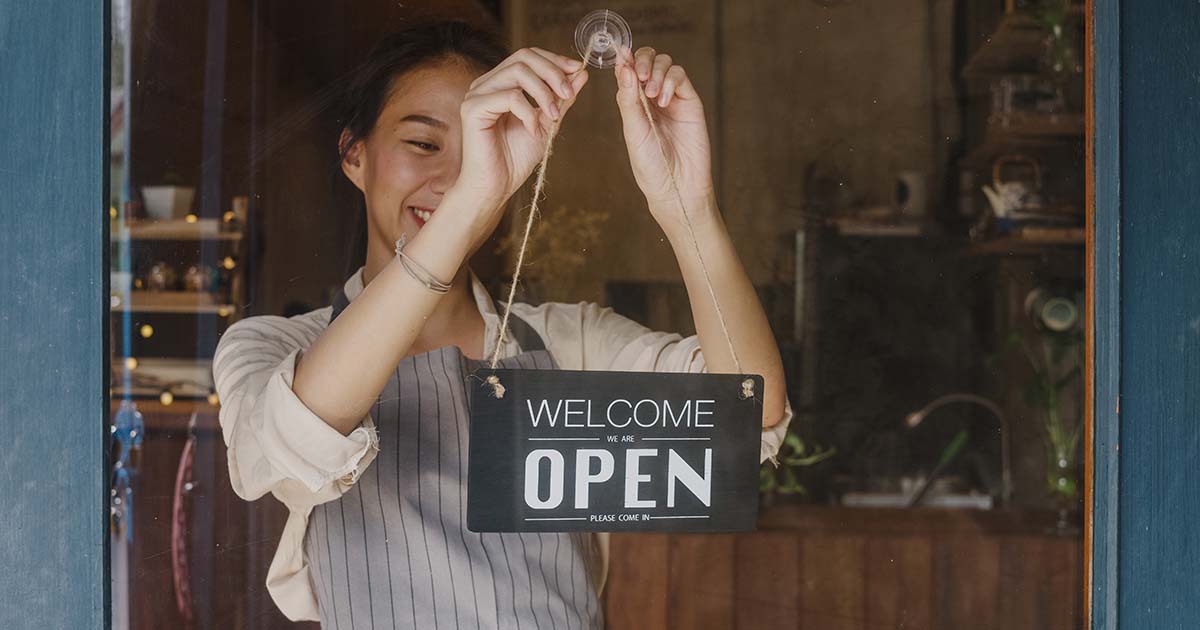
In 2022, there will be 792,000 franchise establishments in the United States, with an estimated 827 billion US dollars in revenue. These figures show the power of the United States in franchising business models. It is a testament to the country’s ability to create and sustain successful franchise brands that have reached the global market. Additionally, these statistics underscore the potential of franchising as a viable business model for entrepreneurs. Do you want to be inspired by the success of established brands? Read more about the six inspiring franchise success stories.
1. McDonald’s (Raymond Albert Kroc)
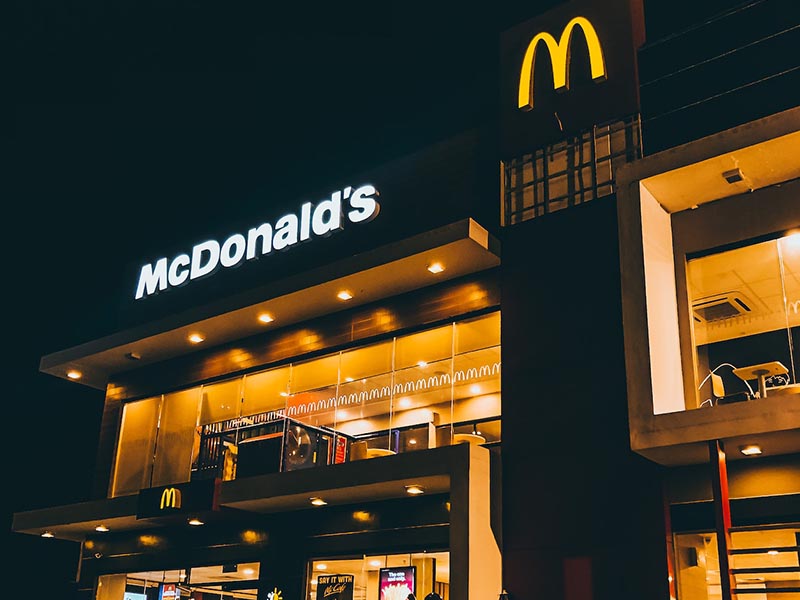
Ray Kroc was the milkshake salesman behind McDonald’s chain, turning it into a global empire. Kroc bought the company from the McDonald’s brothers in 1954 out of frustration that McDonald’s needed to expand more efficiently. The iconic businessman applied Henry Ford’s assembly line concepts to fast food. Moreover, his standardization model resulted in many other franchise concepts.
McDonald’s is one of the most successful franchises in history, With over 37,000 locations worldwide. During the 2022 financial year, McDonald’s franchise restaurants generated a total sales of 109.47 billion US dollars. The fact that the company is a valuable global franchise is a manifestation of powerful franchising. It shows that a franchise business can succeed with the right resources, dedication, and hard work.
2. Kentucky Fried Chicken (Harland “Colonel” Sanders)
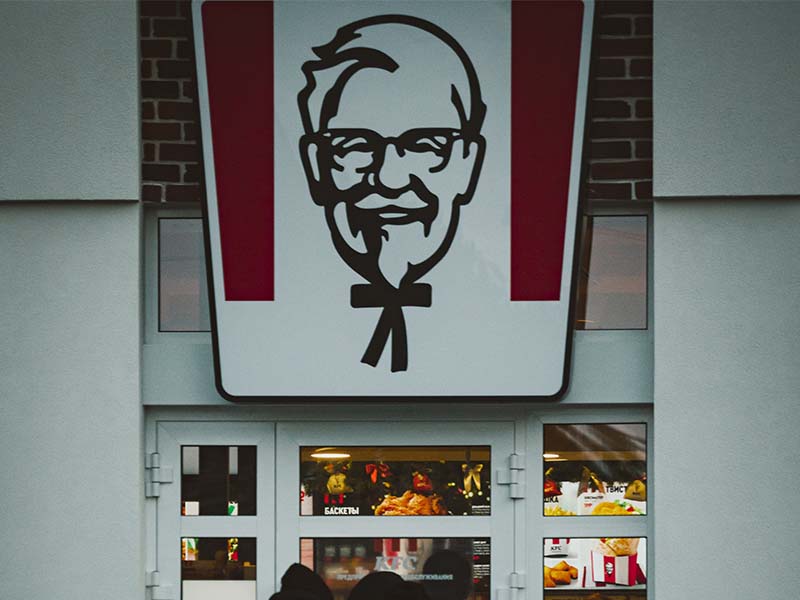
At 62, when people typically consider retirement, Colonel Harland Sanders established KFC. Age was always just a number for the visionary KFC founder. He made a special fried chicken recipe that people loved. Sanders took $105 from his Social Security check and traveled the country to convince restaurant owners to franchise as Kentucky Fried Chicken establishments.
At 74, he decided to sell his organization; KFC was like a child to him, and selling it off was not an easy decision for Sanders! The new proprietor of KFC accepted that the face of Sander’s was perhaps the best resource for the “KFC brand.”
He was kept as a brand ambassador, and to date, we see Sander’s face on the logo of KFC. Currently, it is the globe’s second-biggest restaurant chain after McDonald’s, with over 24,000 locations.
3. Hilton Hotels (Conrad Hilton)
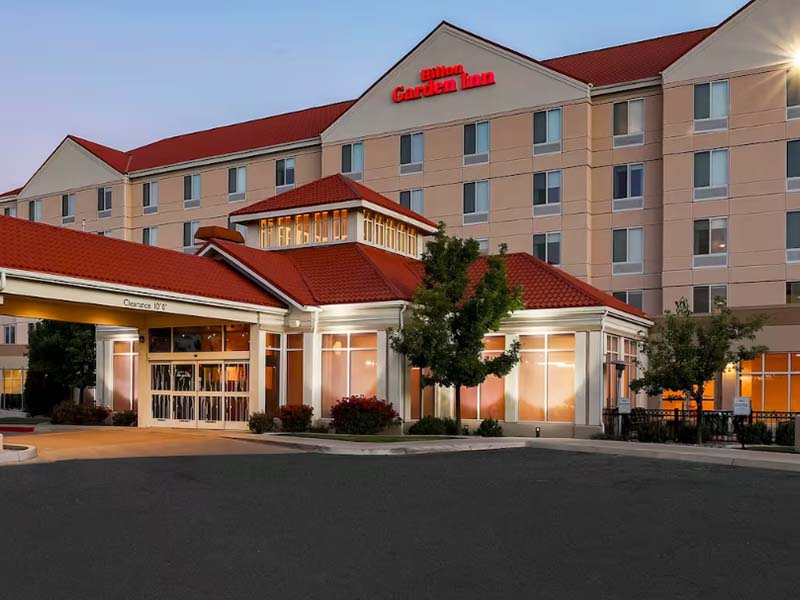
Hilton Garden Inn Reno, Nevada (Credit: hilton.com)
From humble beginnings to global recognition, witness the journey of Conrad Hilton, the visionary founder who transformed a single hotel into a worldwide empire. From his first hotel in Cisco, Texas, in 1919, Conrad Hilton only sometimes wanted to be in the lodging industry. His original plan was to become an oil magnate, but his first deal of investing in a bank in an oil town fell through. After this plan failed, Hilton focused on real estate and ended up buying hotels across Texas. At one point, he lost several hotels and almost filed for bankruptcy.
After the economy turned, the hotelier’s business took off. He soon owned iconic hotels like the Waldorf Astoria and the Plaza Hotel and went on to receive honorary degrees from six different universities.
Hilton is one of the world’s largest hotel chains today, with over 6,500 properties in 119 countries. Hilton Hotels & Resorts is a widely recognized brand known for its luxury accommodations and exceptional hospitality.
4. 7-Eleven (Joe C. Thompson)
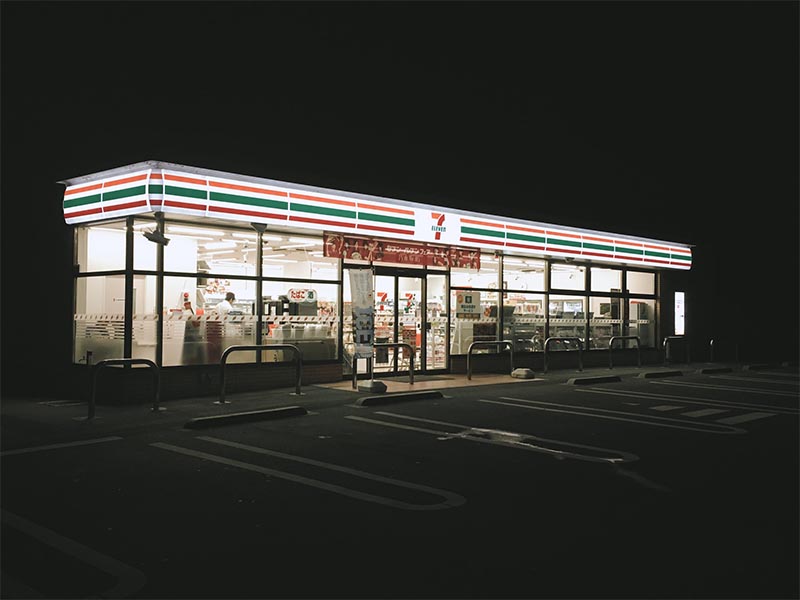
The 7-Eleven convenience store franchise is fourth in our success stories. Presently, 7-Eleven operates over 70,000 stores in 17 countries. Known for its 24/7 service and wide range of products, 7-Eleven has become integral to many communities.
Joe C. Thompson founded the company in 1927 as an ice and beverage stand in Dallas. Thompson launched the 24/7 store in 1960 and rapidly became successful. Now its business model is copied by many competitors.
In 1980, 7-Eleven’s parent company experienced a financial loss in the same year due to the stock market crash. But in 1987, Japan’s largest convenience store company bought them. 7-Eleven re-established itself as one of the American convenience store leaders and continues to grow.
5. Subway (Fred Deluca)
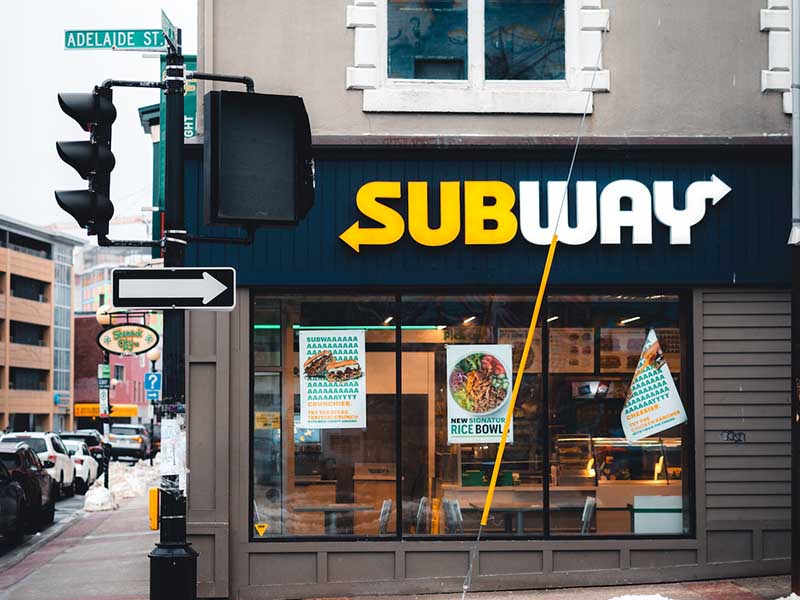
Fred Deluca borrowed $1,000 at age 17 to start his sandwich shop to help pay for college at the University of Bridgeport in Connecticut. Initially calling it “Pete’s Submarines,” after the man who loaned him the money, Deluca sold 315 sandwiches on his first day. After a few name changes, Deluca decided to go with the name Subway and decorated his store interiors with New York City subway maps.
Subway is another notable franchise success story. It has over 44,000 locations in more than 100 countries. Subway’s customizable sandwich concept and emphasis on healthier options have helped it gain widespread popularity.
6. Auntie Anne’s (Anne Beiler)
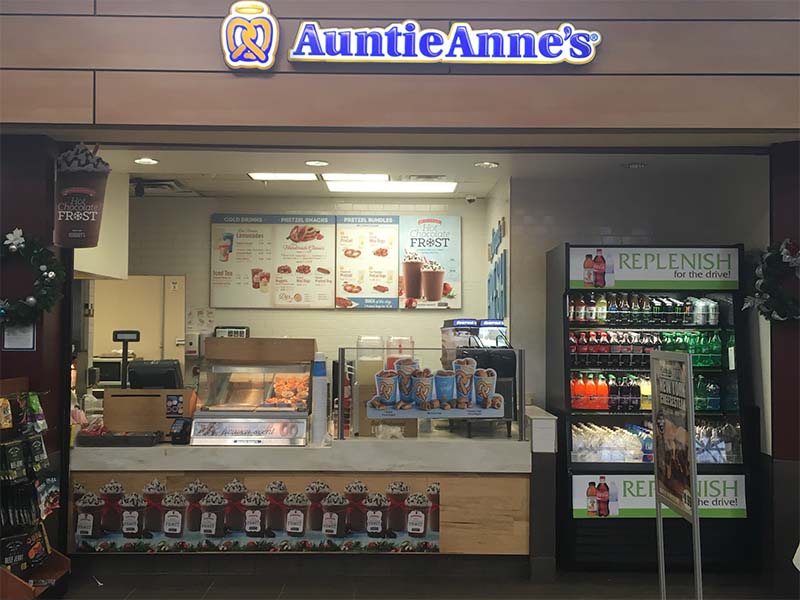
Auntie Anne’s, the beloved pretzel chain, has become an international sensation with its delectable pretzels and warm, inviting atmosphere. Auntie Anne’s was established in 1988 by Anne Beiler and her husband, Jonas Beiler, in Downingtown, Pennsylvania. Anne Beiler developed a recipe for hand-rolled, freshly baked pretzels that quickly became popular among locals. Realizing the potential of her product, she decided to turn it into a business.
In 1989, Auntie Anne’s started offering franchises, allowing entrepreneurs to open their pretzel shops using the brand’s recipes and business model. This franchise model proved successful, and Auntie Anne’s began to expand rapidly across the United States.
Conclusion
Aspiring entrepreneurs should think outside the box, discover problems and gaps, and develop innovative solutions to create new opportunities. These franchise success stories serve as evidence of the potential that lies within the franchise model. Through the founders’ perseverance, these franchises have transformed their businesses and inspired countless others to follow in their footsteps.
You may like
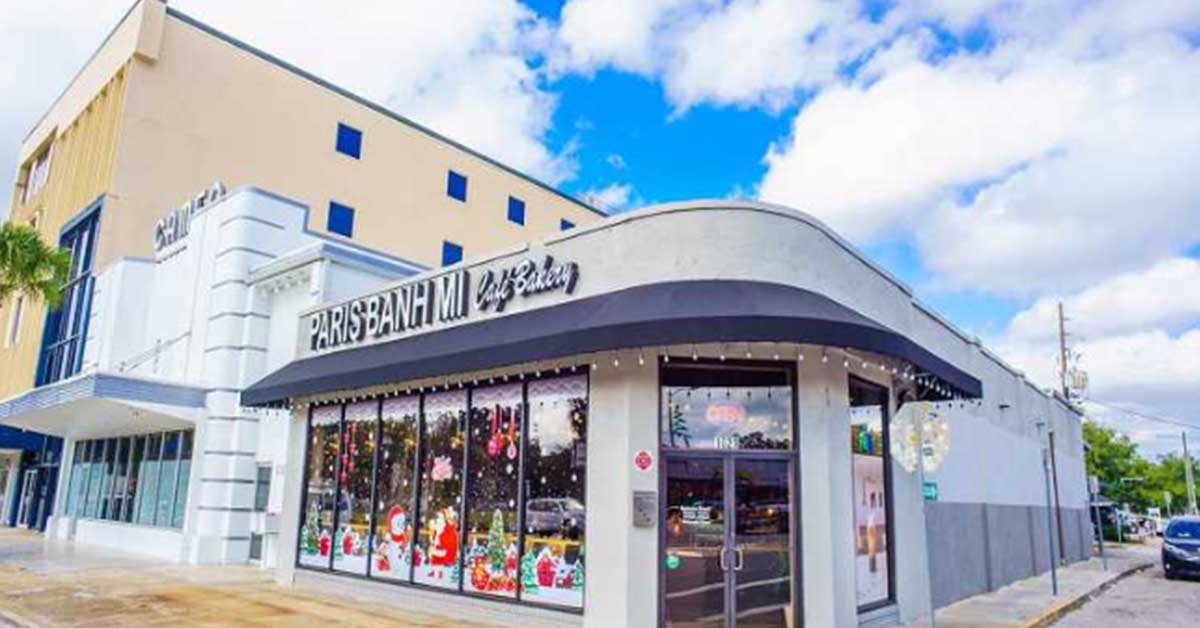
Are you gearing up for a new business in 2024? Forget the next big tech start-up -the latest trend in town might be a perfectly toasted baguette. Take Paris Banh Mi Cafe and Bakery, for instance. This Vietnamese sandwich shop is rapidly growing, with locations popping up from coast to coast, from California to Florida.
But what’s the secret behind their success? Explore why the Paris Banh Mi franchise has snowballed in the last two years and be inspired to start your own business .
About Paris Banh Mi
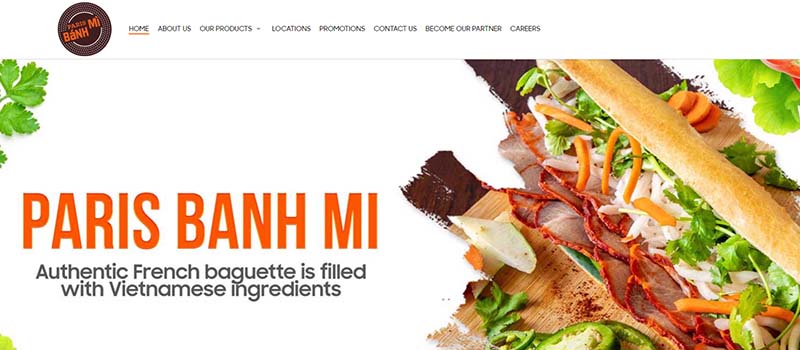
The French baguette was introduced in Vietnam in the mid-19th century when the country was still a part of French Indochina. In the 1950s, Saigon saw the birth of a unique Vietnamese sandwich, “bánh mì,” which quickly became a favorite food of a large part of the population.
The story of Paris Banh Mi started in Orlando, Florida, at 1021 E Colonial Drive in 2019. Hien Tran and Doan Nguyen, a married couple passionate about food, opened the first Paris Banh Mi location. Their concept was simple: bring the delicious flavors of Vietnamese banh mi sandwiches, traditionally baguettes filled with savory meats and pickled vegetables, to a broader audience.
The customers quickly fell in love with the fresh ingredients, bold flavors, and convenient fast-casual setting. Now, Paris Banh Mi Cafe and Bakery promises to bring their customers the best “Baguette Banh Mi” taste.
In just two years, the laid-back cafe and bakery in Florida multiplied into a chain of stores in the county. Today, Paris Banh Mi is serving customers in 46 locations all across the USA. The company plans to expand to 100+ locations by 2026.
Each Paris Banh Mi Cafe and Bakery has a clean and spacious dining area, fast service, friendly staff, and a selection of delicious food and pastries. Take a peek at some of their mouth-watering baguette sandwiches filled with authentic Vietnamese ingredients.
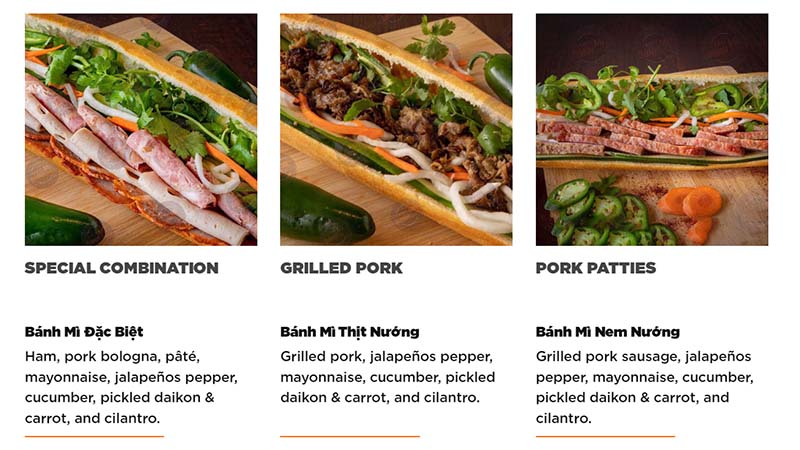
Source: Paris Banh Mi website
For those craving something sweet, the bakery indulges you with a variety of French pastries. Check out their sandwiches, pastries, and beverages on the Paris Banh Mi Cafe and Bakery menu page.
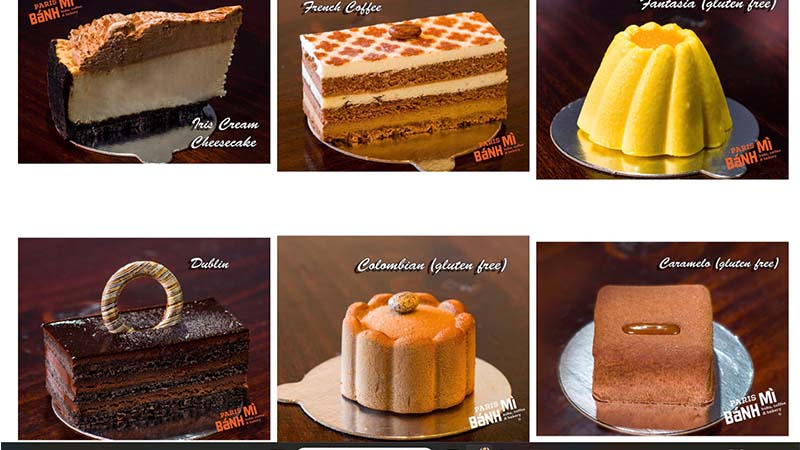
Source: Paris Banh Mi website
Why Own a Paris Banh Mi Franchise
Paris Banh Mi is a franchised quick-service restaurant offering exciting opportunities for aspiring business owners. Many nail salon owners and aspiring entrepreneurs are switching to buying a Paris Banh Mi franchise. The main reasons why they love Paris are:
- It opens a great opportunity and is more profitable.
- Seamless franchising process and fewer things to worry about
- Required low capital to open
- Higher end-of-year profits
The benefits extend beyond operational efficiency. Paris Banh Mi boasts a surprisingly low-cost entry point compared to other franchises.
The initial franchise fee is manageable at $60,000. The total investment for opening a Paris Banh Mi can range from $200,000 to $500,000. This amount reflects the option to acquire a pre-existing, equipped location (second generation) for a lower investment cost or a complete build-out from scratch option.
Regardless of the chosen route, the investment is significantly lower than that of building a business from the ground up, making Paris Banh Mi an attractive option for many entrepreneurs.
Licensing Information
Owning a Paris Banh Mi franchise is not just about delicious food! The company is looking for dedicated individuals who can run their restaurant full-time. They will provide a multi-day training program for new franchisees. In addition, Paris Banh Mi offers ongoing support for franchisees, guiding them to make informed decisions and thrive in this exciting industry.
You’re a good fit for a Paris Banh Mi Cafe Bakery franchise if you are:
- Passionate about food, especially fresh baguettes and pastries
- A self-starter with a proven track record in business
- Financially responsible with a focus on results
- Ready to fully commit to building the Paris Banh Mi brand
If you have what it takes, don’t hesitate to contact them through the franchise hotlines on their franchise opportunities page.
Conclusion
Buying a restaurant franchise is one of the most attractive routes in the world of franchising. Paris Banh Mi makes owning your own business a lot easier. Forget the high costs and headaches of starting from scratch. Their low investment and comprehensive training program mean you can be your own boss with a delicious product. If you are ready to take a bite out of success, contact Paris Banh Mi today!
How To's
Chick-fil-A Franchising Opportunities in 2024
Published
1 year agoon
March 14, 2024By
Dan Wesson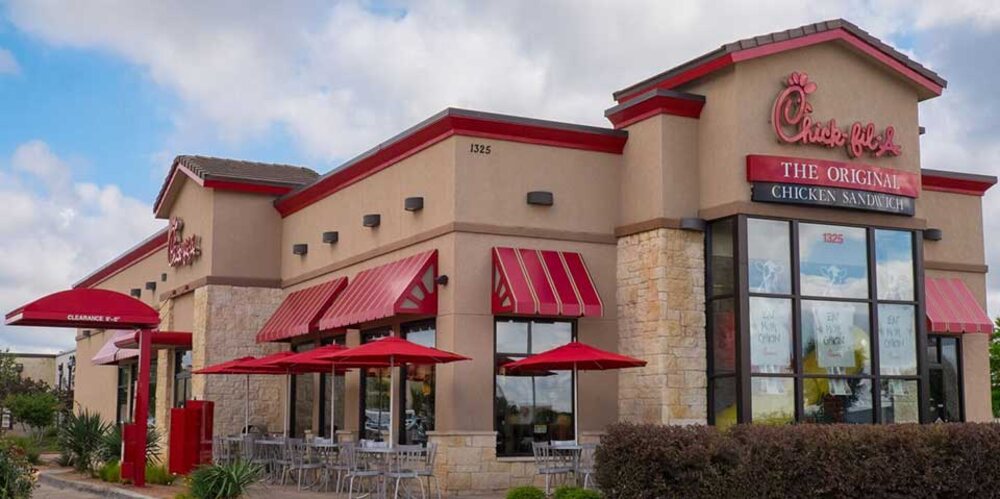
Buying a franchise from Chick-fil-A is an excellent money-making and healthy option. The fast-food chain has been serving hungry consumers the most delicious chicken sandwiches unmatched by other fast-food restaurants. Buying a Chick-fil-A franchise means investing in a good business and your future. It also lets you continue the culture behind the popular food chain. Here are Chick-fil-A franchising opportunities that will give you entrepreneurial freedom in 2024.
Company Overview
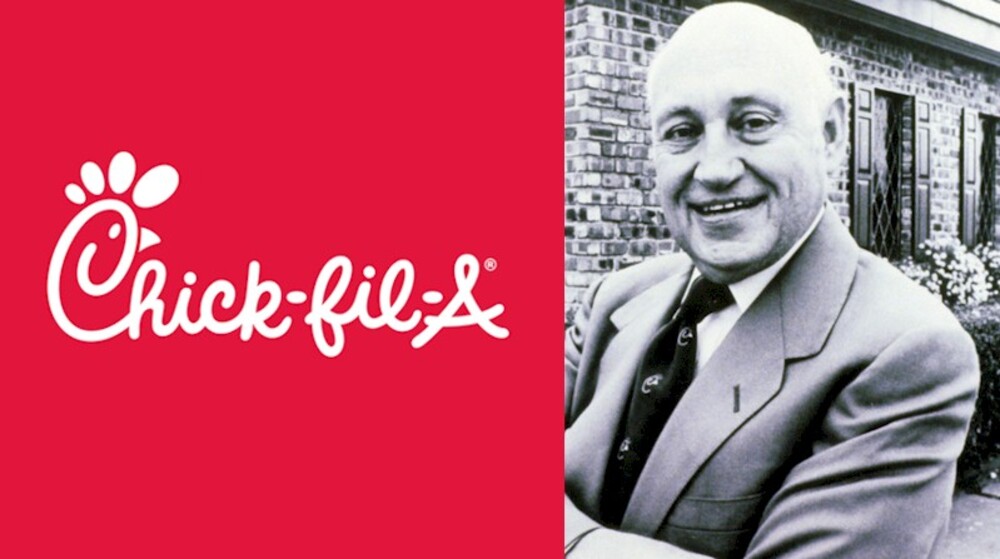
Founded in 1946 by Truett Cathy, Chick-fil-A is deemed one of the longest-running chicken sandwich chains in the United States. The founder opened his first chain in Hapeville, Georgia, and has become a favorite soul food for many. Truett had worked in restaurants seven times a week and knew the importance of rest. That’s why he vowed to close Chick-fil-A every Sunday. He values rest and worship, so he sets aside one day of the week for his employees—a practice that Chick-fil-A still upholds today.
Chick-fil-A also selects franchisees that uphold their values and passion. The company takes great care in selecting who they do business with, which includes getting to know candidates through a lengthy and intensive selection process. The founder’s vision is to influence the people and communities they serve. Chick-fil-A also seeks franchise candidates in Puerto Rico, Canada, and the United States.
Chick-Fil-A candidates are required to show personal financial integrity and stewardship. They also need to have proven experience in leadership and a strong business acumen. Chick-fil-A ensures that candidates showcase entrepreneurial spirit, a strong character, and a growth mindset. This is to uphold the vision and values that Truett started in 1946.
Franchise Training Details
- The initial on-site training programs last three to four weeks. However, the duration and actual location of the training will vary.
- The training program primarily covers operational aspects, such as food preparation, service, customer relations, accounting, communications, purchasing, planning, maintenance, policies, management styles, and marketing.
- The franchisor may require franchisees to attend various conferences and seminars occasionally. This is on top of the initial training program.
- The franchisor may also offer various programs that operators can use in advertising products or hiring staff, which aren’t stipulated in the Franchise Agreement.
Franchise Territory
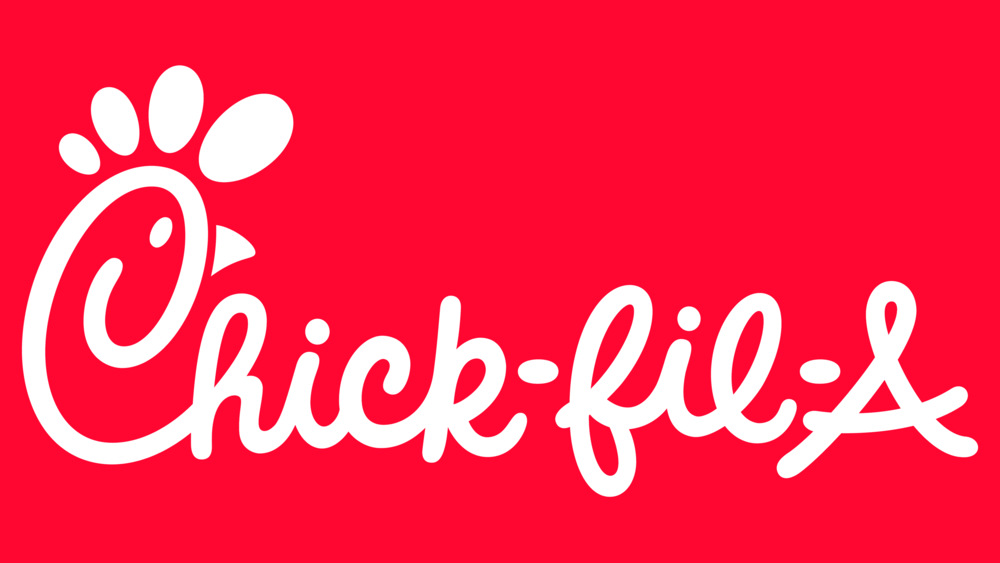
- The franchisor will grant franchisees one Chick-fil-A restaurant at the franchisor’s designated location.
- Franchisees will not get exclusive or protected territory, so they may face competition from other operators.
Franchise Obligations and Conditions
- Franchisees must devote their time and effort 100% to operating their Chick-fil-A restaurant.
- The franchisor only allows franchisees to sell products approved by Chick-fil-A. This also applies to franchisees with a Chick-fil-A-associated food truck.
Franchise Term and Renewal
The franchise term expires on early December 31, the year the agreement is signed or whatever the lease expiration is. Franchisees may apply for one-year extensions unless written notice is given 30 days before the franchise term expires.
Financial Assistance
- The franchisor designates locations, leases, and subleases the store’s premises to franchisees. The lease and sublease terms will vary depending on the type of Chick-fil-A restaurant and location.
- The franchisor also engages in concession agreements that oversee the utilization of non-traditional satellite unit locations with the proprietors or administrators of said satellite unit spaces.
- The franchisor offers extended payment periods for specific pre-opening costs stipulated in the Franchise Agreement. Additionally, the franchisor leases equipment to operators, charging a monthly rental fee based on the fair market rental value established by Chick-fil-A using its singular and exclusive business judgment. It’s important to note that neither the franchisor nor any affiliated entities provide any financing arrangements to operators, either directly or indirectly.
Did You Know?
Here are some fun facts about Chick-fil-A you need to know!
- Did you know that Chick-fil-A only uses peanut oil for frying? That’s what makes the chicken its unique flavor! Chick-fil-A is also the single most significant purchaser of peanut oil in the United States. They also believe peanut oil is a healthier option.
- The best Chick-fil-A promotional gig was the “First 100,” where the first 100 customers inside a new Chick-fil-A restaurant would get free chicken for a year.
- Did you know that the founder, Truett Cathy, invented the chicken sandwich? He worked for a restaurant in Atlanta, and the newly delivered chicken breasts were too big to serve as airline food. He turned this into a meal for the staff.
- You can get a free ice cream cone by walking up to the counter and trading your toy when ordering the kid’s meal.
Franchise Cost
Your Investment
| Name of Fee | Low | High |
|---|---|---|
| Initial Franchise Fee | $10,000 | $10,000 |
| Opening Inventory | $13,500 | $140,000 |
| First Month’s Rental of Equipment | $750 | $5,000 |
| First Month’s Lease/Sublease of Premises | $2,550 | $85,500 |
| First Month’s Insurance Expense | $240 | $12,000 |
| Additional Funds | $491,345 | $2,550,935 |
| ESTIMATED TOTAL | $518,385 | $2,803,435 |
Other Fees
| Type of Fee | Amount |
|---|---|
| Advertising | May vary (a) between 0% to 3.25%, to be determined by Chick-fil-A, as a percentage of gross receipts or (b) by vote of operators in local or regional areas. |
| Advertising Support and Services Fee | Advertising support and services fees incurred, if any, will vary based upon the support and services offered by the franchisor, and selected and received by the operator; the current in-house blended hourly rate for services is $100; Operator will pay any additional fees, costs and expenses as applicable. |
| Additional Franchise Fee | $5,000 for each additional Chick-fil-A restaurant business. |
| Business Services Fee | $300 (monthly). |
| Rent (Traditional Restaurant) | $2,550 to $85,500 (including where applicable, percentage rent). |
| Occupancy Charge (Satellite Unit) | Determined under the concession agreement attached as an exhibit to the concession sublicense agreement; currently estimated to range between 4% and 30% of gross receipts. |
| Food Truck Usage Fee (Food Truck) | Currently $2,100 to $3,100, plus additional fees, costs and expenses. |
| Food Truck Insurance Fee (Food Truck) | Currently $250 to $450 (monthly). |
| Insurance | $240 to $12,000 (monthly). |
| Equipment Rental | Currently $750 to $5,000 (monthly). |
| Hardware and Software Support; High-Speed Internet Access | $9,500 to $20,000 (annually). |
| Fines – Minimum Standards and Procedures | Will vary under the circumstances. |
| Indemnification | Will vary under the circumstances. |
| Operating Service Charges | Determined by formula. |
| Credit Cards Fees and Related Processing Fees | Will vary. |
| Highway Signage | Will vary under circumstances. |
| Interest on Late Payments | The maximum rate permitted by law, or if none, 1.25% per month. |
| Cash Handling System Services | $85 to $450 (monthly) |
| Reimbursement of Cost of Performance | Costs and expenses of performance. |
| Holdover Liquidated Damages | Double the base rent and percentage rent. |
Here are the Chick-fil-A franchise costs:
If you’re looking for another investment opportunity, visit Franchise How’s website for more information.
How To's
Zoom Sewer and Drain Cleaning Franchise Cost
Published
1 year agoon
March 12, 2024By
Dan Wesson
Taking care of your home’s plumbing system is an essential part of being a homeowner. However, not everyone has the skill and patience to do it, and so franchises such as Zoom Sewer and Drain Cleaning are some of the most lucrative. Here’s what you need to know if you’re thinking of getting it:
Franchise Description
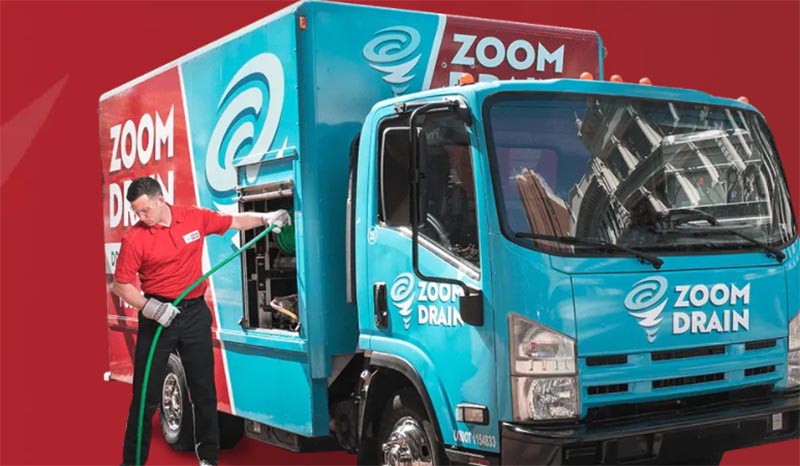
Zoom Sewer and Drain Cleaning provides drain cleaning, maintenance, sewer inspections, repair and replacement services for residential and commercial customers. The business began in 1995 and had been franchising since 2013. They have their headquarters in Norristown, Pennsylvania, and Zoom Franchise Company, LLC is the franchisor.
Training

Training for the franchisee’s principal owner and personnel will be provided by the franchisor or its representatives and agents. Before starting your franchise, Zoom Sewer and Drain Cleaning will require you to complete their training program. It comes in two phases:
- Phase 1: 2 to 3 days training at the Franchise Business
- Phase2: 2 to 3 days in Norristown, PA
The franchisor may also require you to attend additional training during the length of your term agreement. The franchisor is planning to hold a 2 to 3-day national Zoom Fest yearly. This will be held in Norristown, PA, or any location it designates. They will require franchisees to attend, but their managers will be welcome.
Territory
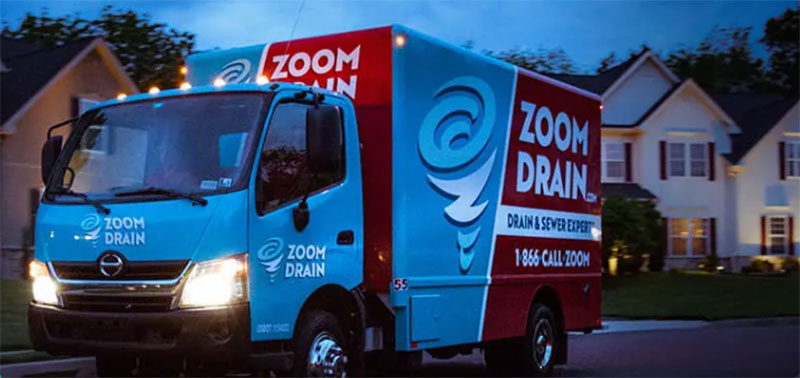
The franchisor will designate a protected territory where the franchisees will operate their business. Before signing any Franchise Agreement, both the franchisor and the franchisee will agree on a geographic territory.
The franchisor will base the protected territory on contiguous zip codes that will consist of approximately 500,000 individuals. This will be based on the most recent U.S. Census data at the time of signing the franchise agreement. This means that as long as the deal is taking effect, the franchisor or its affiliates will not locate, operate, or grant a franchise for another Zoom Sewer and Drain Cleaning business within the protected territory.
Obligations
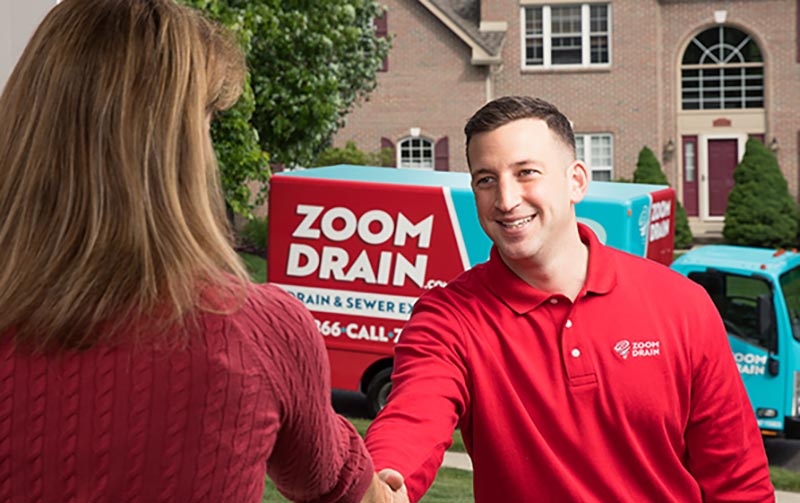
The franchisor requires the franchisee or its principal owner to exert every effort to take responsibility for the management of the business. They will do this on a daily basis unless they agree on an alternate arrangement. With the franchisor’s discretion, the franchisee can hire a manager to handle the operations of the business.
Franchisors will also require you to sell products and services that have their approval. On the other hand, franchisees aren’t allowed to sell unauthorized products or services in compliance with the franchise agreement. Franchisees are also not allowed to solicit business outside of the protected territory. They are, however, permitted to serve customers outside of the protected territory as written in the FDD.
Term of Agreement

The initial franchise will take ten years after the signing of the agreement. You can renew the contract for another ten years, for four times, if you continue to meet the requirements.
Financial Assistance

Zoom Sewer and Drain Cleaning doesn’t offer direct or indirect financial assistance to its franchisees. In addition, they will not guarantee a franchisee’s note, lease, or obligation.
Did You Know?
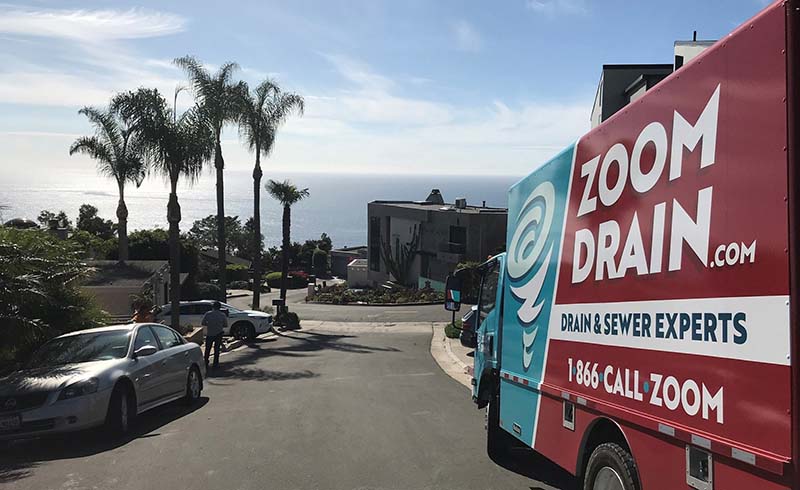
Get to know more about Zoom Sewer and Drain Cleaning before you get that franchise. Here are some facts about the business:
- They have very little competition in the niche. Most of their competitors are independent plumbers and contractors
- According to the company’s co-founder and COO, Ellen Rohr, this is a recession-resistant business, and the Covid-19 pandemic has proven this
- They have a reported $12 million in revenue with 53 employees and 15 franchisees
Your Investment
The table below shows the estimated cost of a Zoom Sewer and Drain Cleaning franchise. Take note that these numbers may change without any prior notice.
| Name of Fee | Low | High |
|---|---|---|
| Initial Franchise Fee | $35,000 | $35,000 |
| Lease | $3,000 | $9,000 |
| Leasehold Improvement | $2,000 | $40,000 |
| Furniture, Fixtures and Computer System | $7,500 | $13,000 |
| Vehicles | $7,000 | $9,500 |
| Vehicle Wrap and Design | $4,500 | $5,500 |
| Initial Equipment and Inventory of Supplies | $40,000 | $50,000 |
| Business Licenses and Permits; Deposits and Pre-Paid Expenses | $0 | $5,000 |
| Professional Fees | $500 | $3,000 |
| Insurance – Quarterly | $4,000 | $6,000 |
| Initial Training Expenses | $500 | $3,000 |
| Initial Marketing Expenses | $45,000 | $60,000 |
| Additional Funds – 6 months | $50,000 | $100,000 |
| ESTIMATED TOTAL | $199,000 | $341,000 |
Other Costs
| Type of Fee | Amount |
|---|---|
| Royalty Fee | 5% of Net Sales. |
| Marketing Fee | Up to 2% of Net Sales. Currently, the franchisor does not charge this fee. |
| Call Center Fee | Up to $25 per scheduled appointment. Currently, the franchisor does not operate the Call Center or charge a Call Center Fee. |
| Technology Fee | The then-current Technology Fee; currently $500 per month. |
| Webpage Development and Optimization Fee | The then-current fee charged by the franchisor’s designated website SEO provider; currently $695 per month. |
| Additional Location Fee | The then-current Additional Location Fee; currently $2,000. |
| Transfer Fee | Up to 50% of the then-current Initial Franchise Fee. |
| Renewal Fee | Up to 25% of the then-current Initial Franchise Fee. |
| Additional Training and Assistance | Fee and all expenses. Currently $1,000 per day plus travel expenses. |
| National Conference | Reasonable fees and all expenses. |
| Testing for Supplier Approval | Reasonable fee. |
| Interest on Late Payments | Lesser of 1.5% per month or maximum legal rate. |
| Audit Fee | Cost of audit. |
| Taxes | Actual cost. |
| Indemnification | Will vary under circumstances. |
| Costs and Attorneys’ Fees | Will vary under circumstances. |
For other franchising information, check out more articles here at Franchise How!


The Rise of Paris Banh Mi Franchise

Chick-fil-A Franchising Opportunities in 2024

Insider Interviews: Craig Batiste Co-Founder and CEO of Mr. Fries Man

The Top 8 Most Expensive Franchises to Buy

12 Cheapest Restaurant Franchises With Low Total Investment

